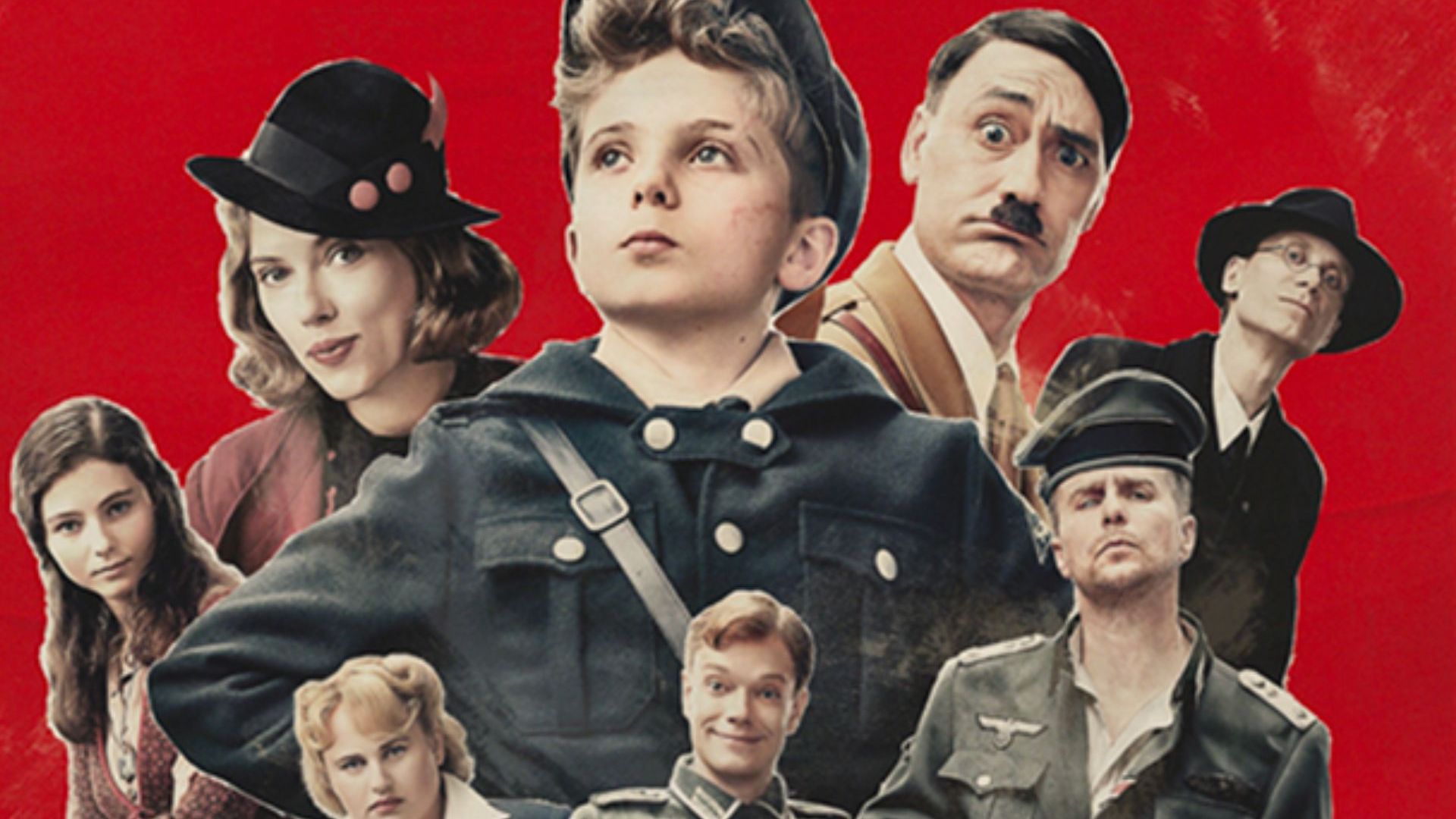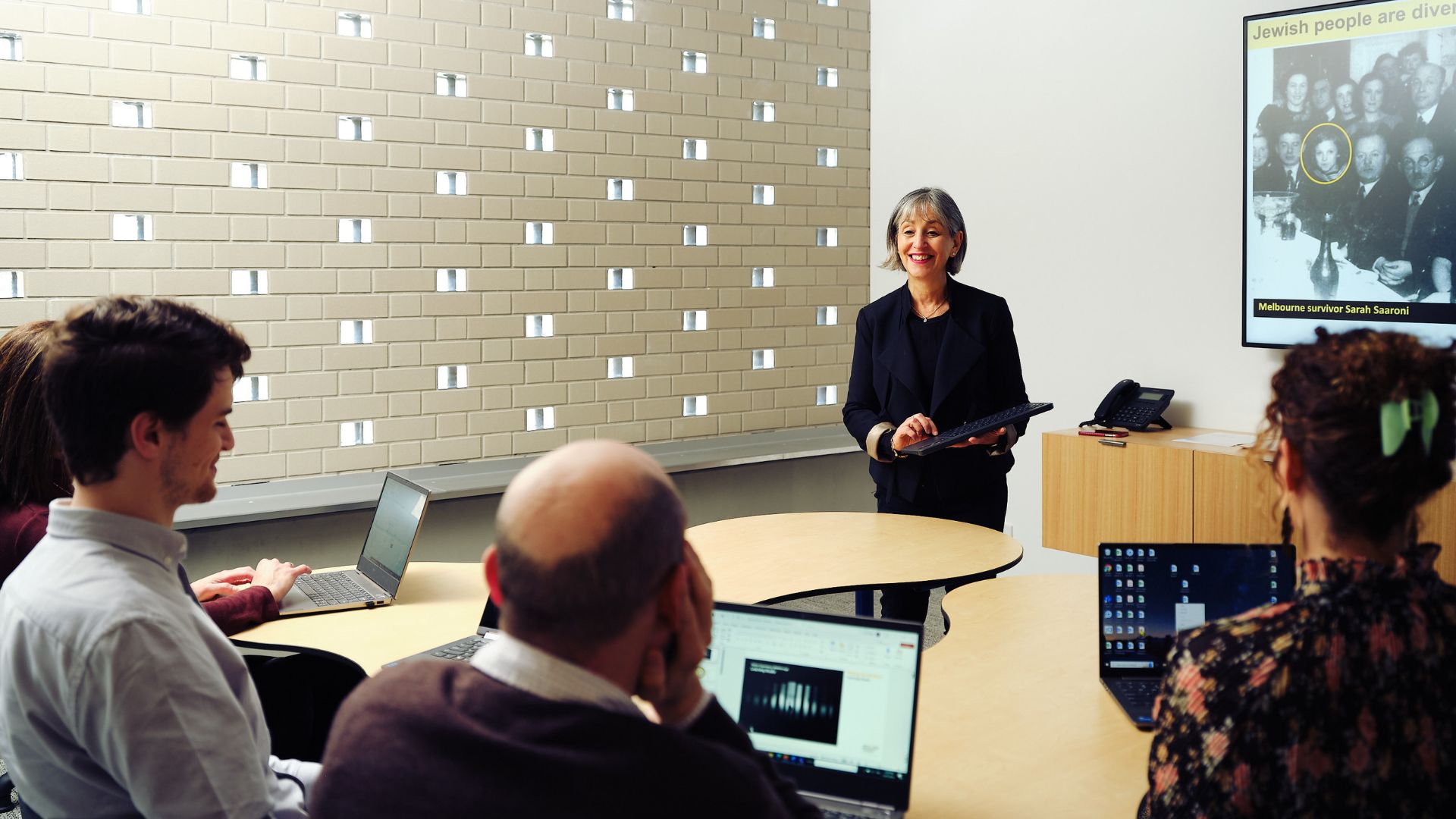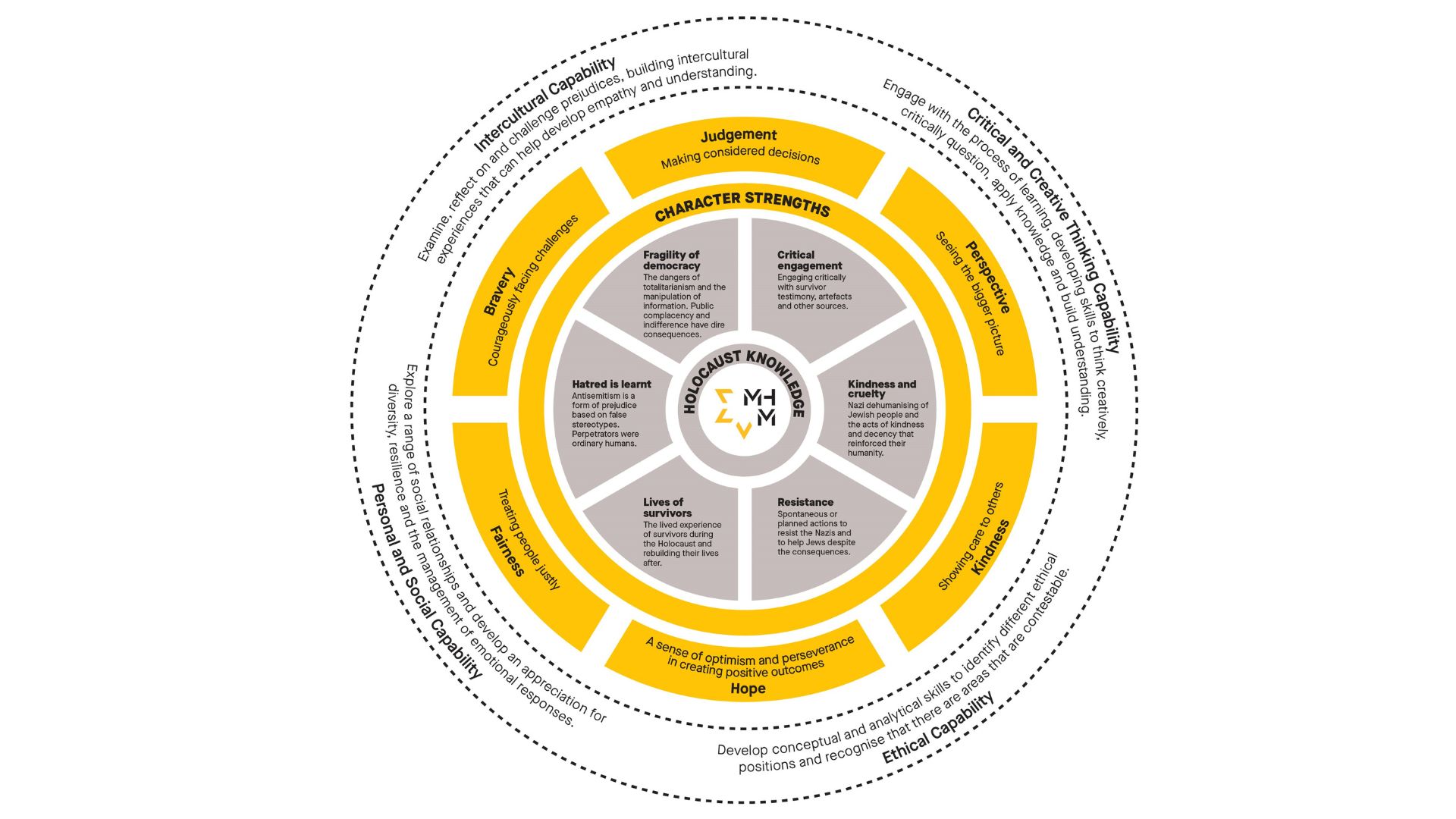Program Details
| Cost | $5 per student (minimum 20 students) |
| Group size | Unlimited (but smaller groups preferred) |
| Duration | 90 mins |
| Year levels | 5-12 |
| Enquiry | education@mhm.org.au or (03) 9528 1985 |
Our virtual workshops provide a unique learning experience for students in Years 8 to 12.
Students can gain a deeper understanding of the Holocaust by hearing about survivors’ individual experiences and investigating historical artefacts.
They explore the relevance – and importance – of learning about the Holocaust in today’s world. Discover the bravery, fairness, kindness, hope and perspective of our Melbourne-based survivors. And reflect on their roles as individuals – and the impact of their choices on those around them.
This program:
- Follows our ‘safely in, safely out, and safely throughout’ policy
- Ensures age-appropriate engagement with the Holocaust
- Is aligned to the Victorian curriculum
- Can be tailored to your unit of work
- Is delivered by our expert museum educators
- Is conducted via Zoom and accessible from your school (anywhere in Australia)
Program structure
This online workshop starts with a visual and analytical introduction to the Holocaust. Students then receive a guided exploration of our virtual museum, where they interact with curated survivor testimony and artefacts. Throughout the 90-minute virtual program, students have ample opportunities for reflection and discussion.



